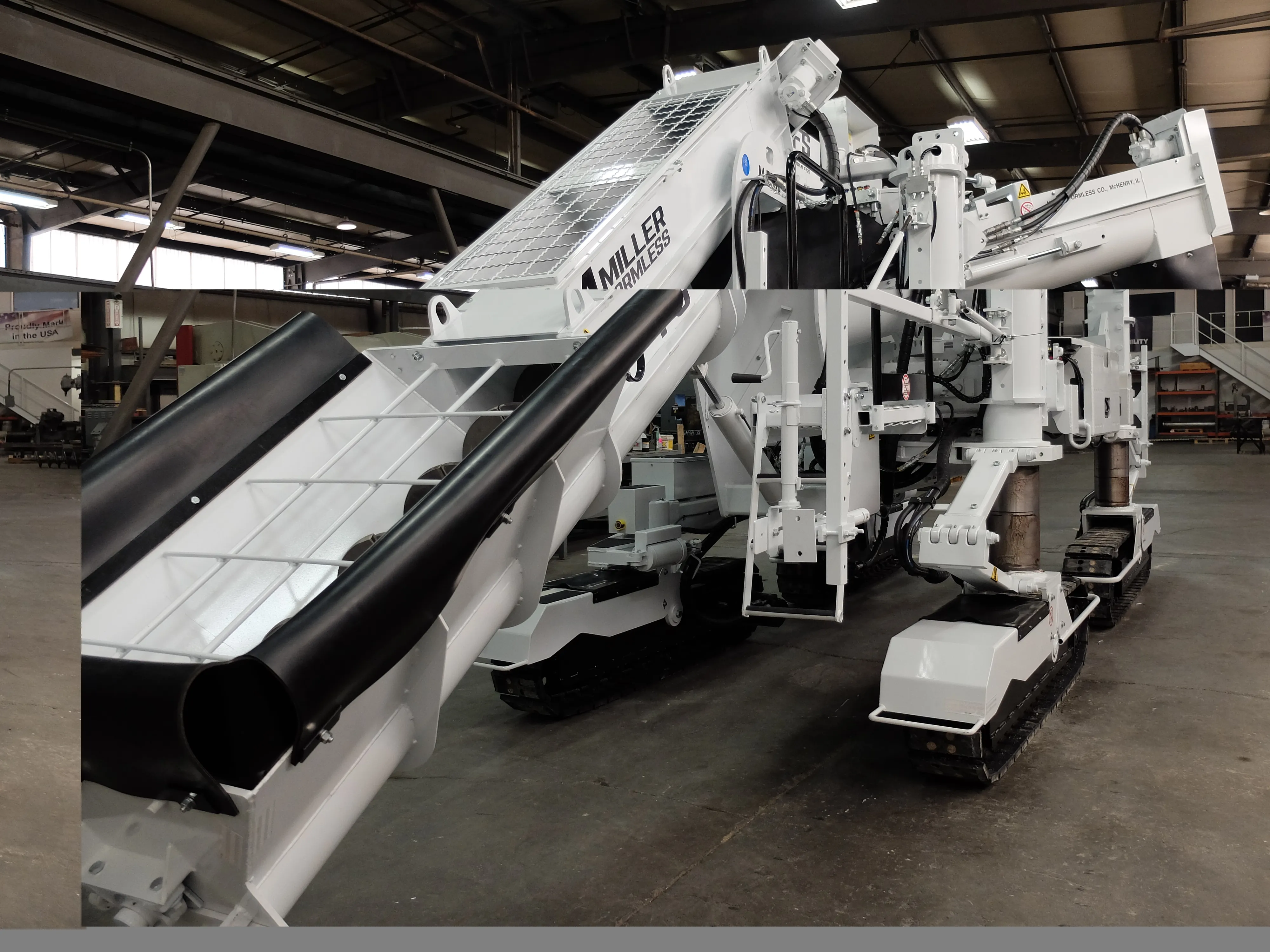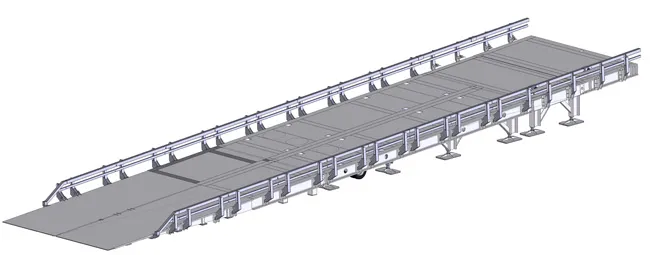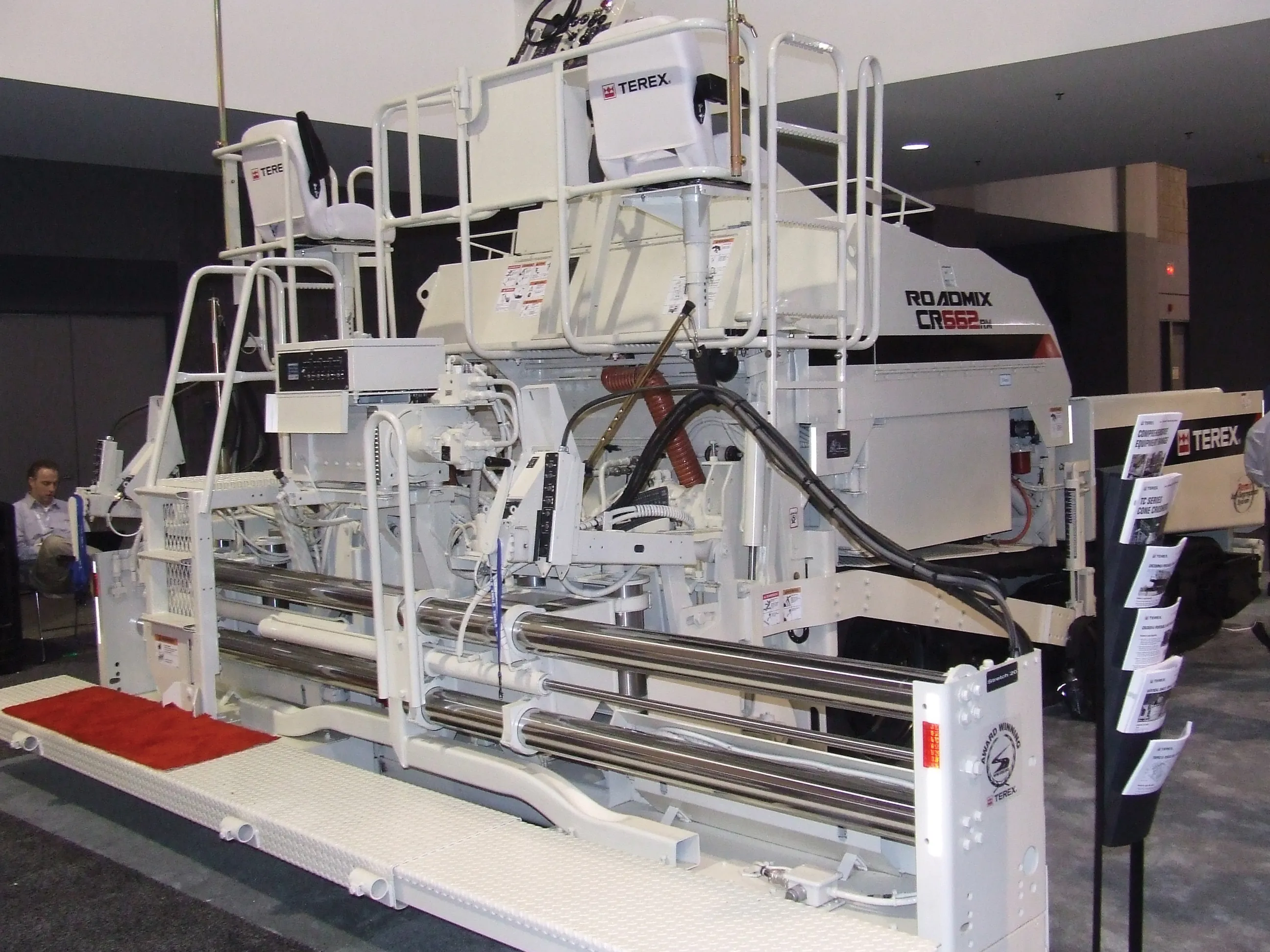
Miller Formless is undergoing a process of change under its new ownership, with investment in the factory as well as in the product range. The recent tie-up between
The product ranges for Miller Formless and Guntert & Zimmerman complement each other as they do not overlap. Scott Smith is chief executive officer at Miller Formless and commented, “Where we end is where Guntert begins.”
However Miller is looking to develop its product line-up. The firm has three main models in the range at present, which are offered with a wide array of options. Smith said, “We’ve got three different machine designs but we’ve over 2,000 mold designs. We focus a lot of attention on the mold as it’s where you get the quality.”
The bolt patterns are interchangeable so that the molds can be used between different models in the range. And in addition, the firm manufactures molds for customers that are sometimes used on slipformers from competing manufacturers.
The M1000 is Miller’s most compact unit and can be used to slipform barrier up to 1m high on a 610m radius, as well as pave up to 1.52m wide. Smith said, “It’s a compact machine but it’s a four track rather than a three track, so it’s more stable. It can pour a lot of concrete as well.” He added that many contractors have commented on how they prefer a four track over a three track, because of the extra stability this configuration offers. However Smith also said, “We would redesign it and offer a three track version though if the customers asked for it.”
The 8100 is the firm’s mid-range machine and this is the model also being manufactured in India at present. Meanwhile the top of the range slipformer from Miller is the 8800. This was developed primarily for barrier wall work and can pour a wall up to 2.59m high either on the left or right side. But Smith said that the machine has 1.2m of hydraulic frame widening and can be used to pave up to 6m wide. Smith added, “While we can pave, the machines we design are primarily for kerb and gutter or barrier wall work.
Smith said that the Miller machines are well-proven and are rugged in construction, allowing a long working life. But he admitted that the designs need updating and said, “We’re in the design development stage for new machines. We're looking to enhance our existing line-up and come up with new designs and new products that our customers want.”
The partnership with Guntert & Zimmerman is playing a key role as Smith said, “Our engineers are talking on a regular basis and exchanging ideas. It’s becoming more than just a marketing and dealership arrangement.”
Smith explained, “We’ve already made some enhancements to the controls on the M1000 and we’re looking to expand that to the 8100 and the 8800.”
The proven
The M1000 now features Akerman type steering, which allows for more precise control when slipforming curves, as well as reducing track slip. Smith said that this ensures that the pour can be consistent around a tight radius. However the firm is looking to further update the design of the steering systems on its models for even better tracking on tight curves.
Overall, Miller says that its machines are tough, durable and long-lived. For example, the feed augers are made from cast components that are bolted together while customers have a choice of different flight types. Thomas Uutala is chief financial officer for Miller Formless and said, “We use an auger instead of a conveyor, for capacity. It’s also a more resilient design.”
At the moment Miller Formless fits
Miller is looking into the development of remote diagnostics for its machines, which would provide customers with information about the engine and hydraulics.
To further boost its technology development team the firm hired a number of younger engineers and has also developed a relationship with Marquette University in Wisconsin. This is focussing on aspects of mix design at present. Uutala explained, “It’s a win-win situation, as we give them a lot of real world applications.”
The firm is now looking ahead and is benefiting from strong demand. Smith said, “In the last year we’ve made steps to increase out international presence and we’re in a strong position. Our facility has the capacity to increase output. We’ve doubled the workforce and we’re looking to grow.”
And Uutala added, “We’re looking to reinvent the company and take it into the 21st century but we will keep what made it strong.”







